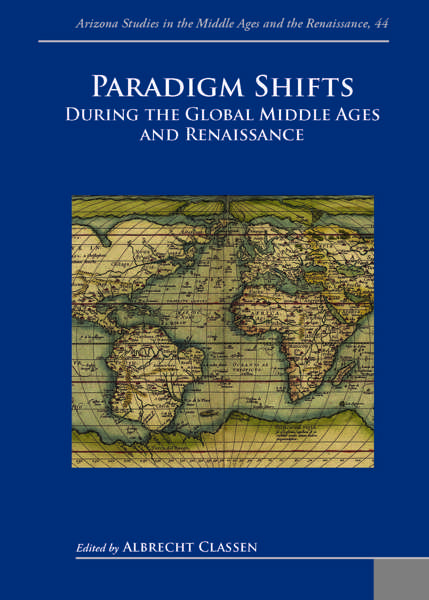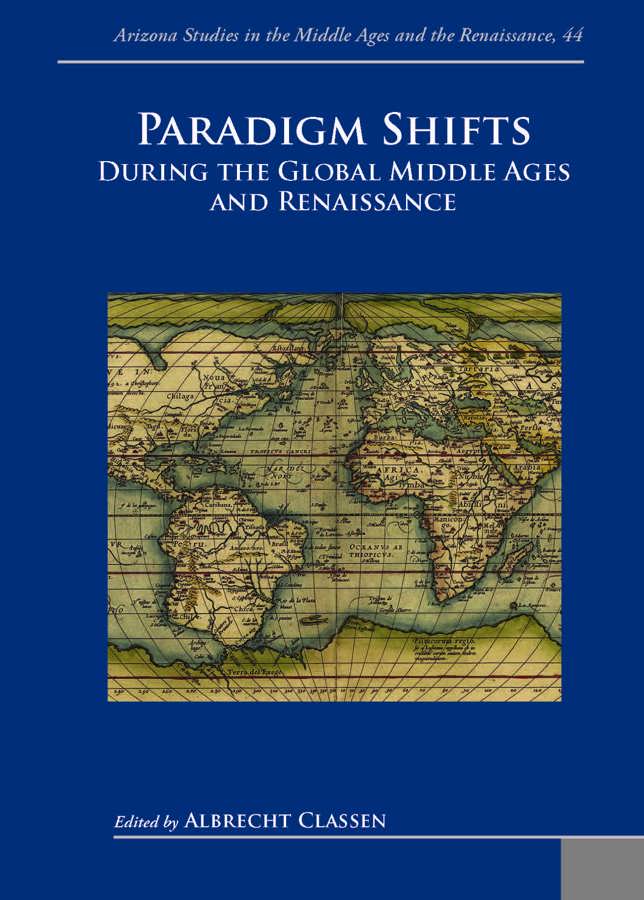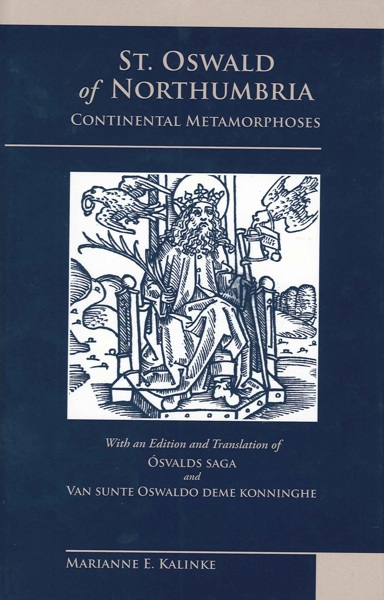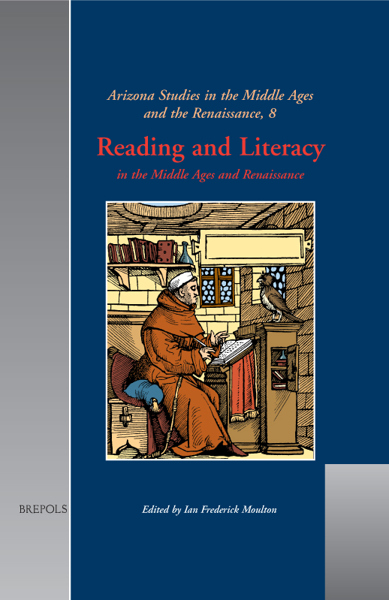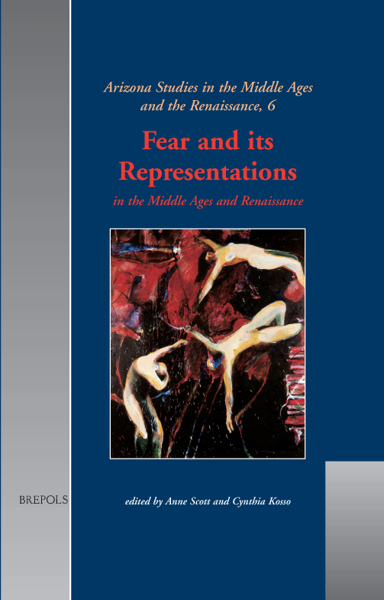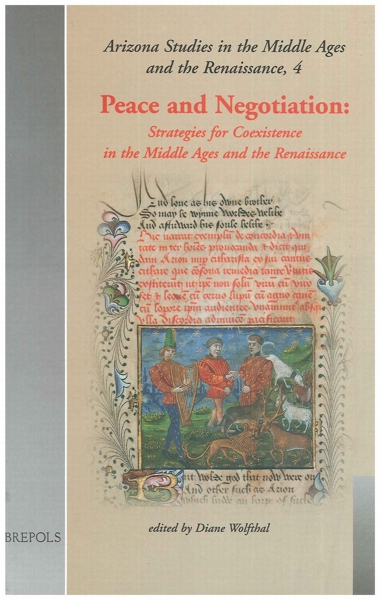
Paradigm Shifts During the Global Middle Ages and Renaissance
Albrecht Classen (ed)
- Pages: xlvi + 396 p.
- Size:156 x 234 mm
- Illustrations:29 b/w
- Language(s):English
- Publication Year:2019
- € 120,00 EXCL. VAT RETAIL PRICE
- ISBN: 978-2-503-58304-4
- Hardback
- Available
- € 120,00 EXCL. VAT RETAIL PRICE
- ISBN: 978-2-503-58305-1
- E-book
- Available
This volume explores how we have to conceptualize epochs, epistemes, and paradigm shifts pertaining to the Middle Ages and the early modern period.
For a long time we have naively talked about the Middle Ages, the Renaissance, and other periods, but at closer analysis all those terms prove to be constructed models to help us understand in rough terms profound changes that affected human conditions throughout time. As the contributions to the present volume indicate, paradigm shifts have occurred regularly and constituted some of the critical developments in human existence. The notion of paradigm shift as first developed by Thomas Kuhn is here considerably expanded to address also literary, religious, scientific, and cultural-historical phenomena, to deal with contrasting conceptions of various parts of the world (China versus Europe), conflicts between genders, economic changes pertaining to women’s roles, social and political criticism, models of how to explain our existence, ideological positions and epistemological approaches. The study of paradigm shifts makes it possible to grasp fundamental movements both horizontally (the present world in global terms) and vertically (from the past to the present), exposing thereby central forces leading to shifts in power structures and in the mental-historical world-views. Focusing on paradigm-shifts allows us to gain deep insight into conflicting discourses throughout time and to illuminate the struggle between dominant and competing models explaining or determining reality.
Introduction — ALBRECHT CLASSEN
751 C.E.: Watershed Events in the Carolingian, Byzantine, Abbasid and Tang Empires — RYAN HATCH
The Role of the Crusades in a Paradigm Shift of the Papal Concept of Power — CHARLES W. CONNELL
Shifting Paradigms of Place and Ritual on Crusader Seals Before and After the Fall of Acre in 1291 — LAURA J. WHATLEY
Gender and Paradigm Shift in Old French Narrative, or What Happens when the Heroine Becomes a Hero — KATHY M. KRAUSE
Women’s Legal Capacity: Was the Thirteenth Century a Turning Point? — HEATHER J. TANNER
From Marco Polo to Matteo Ricci: Sino-Islamic Knowledge and the European Discovery of Cathay — R. PO-CHIA HSIA
The Baby and the Bath Water: Satirical Laughter by Thomas Murner and Herman Bote as Catalysts for a Paradigm Shift in the Age Prior to the Protestant Reformation: Literary Comedy as a Medium to Undermine all Authorities and to Create a Power Vacuum — ALBRECHT CLASSEN
"Satura Tota Nostra Est": The Birth of Modern Satire in Renaissance France as Agent and Consequence of a Major Paradigm Shift — BERND RENNER
From Myth to Matter: Ulrich Molitor’s De Lamiis (1489) and the Construction of Witchcraft — WILLIAM BRADFORD SMITH
The Rise of the Spanish Vernacular and the Castilian Literary Canon: From Papal Bulls to Celestina to Vernacular Translations — MARTA ALBALÁ-PELEGRÍN
Middling Women and Economic Continuity: A Paradigm Shift in the Global Renaissance — JEANETTE M. FREGULIA
Alchemy and Science: Dr. John Dee, the Reverend Richard Hakluyt, and Paradigm Change in Early English Exploration — JAMES HELFERS
"Your Clogs will be My Stairway to Heaven": A Wife’s Spiritual Goodness in Franciso de Osuna’s Reformist Dialogue on Marriage, Norte de los Estados — DANA BULTMAN
Confusion and Controversy in Spain During the Paradigm Shift of the Protestant Reformation: The Relationship Between Printing, the Council of Trent, and the Inquisitorial Trial of Fray Luey de Léon (1527-1591) — J. MICHAEL FULTON
Early Modern Pantsuit Politics: Shifting Masculinities in Shakespeare’s Two Gentlemen of Verona — DORIS BARKIN
"If a lie may do thee grace": Shifts of Memory in Shakespeare’s Second Tetralogy — JONATHAN BALDO
Goddess and Guide or Treasury and Machine?: Seventeenth-Century Debate About the Role of Nature — THOMA S WILLARD
List of Contributors
Index
